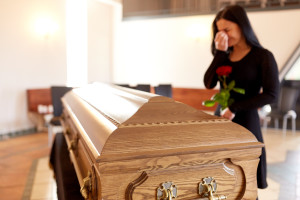Banned in Poland and the U.S. New facts have come to light: the results are spectacular.

Many combat veterans suffer brain damage from head trauma or explosions . These injuries are a leading cause of post-traumatic stress disorder, anxiety, depression, and suicide among veterans. Treatment is difficult and often ineffective.
Researchers at Stanford Medicine have shown that the psychoactive plant medicine ibogaine—when combined with heart-protective magnesium—safely and effectively reduces PTSD, anxiety, and depression and improves functioning in veterans with traumatic brain injury (TBI).
To uncover the neural mechanisms underlying cognitive improvements, the study authors analyzed electroencephalography and MRI scans collected from 30 veterans . They found, for example, that veterans who improved executive function after ibogaine treatment tended to have an increase in the frequency of brain waves called theta rhythms. They also found that veterans with reduced PTSD symptoms after treatment tended to have a decrease in the complexity of activity in the cerebral cortex.
Scientists speculate that stronger theta rhythms may promote neuroplasticity and cognitive flexibility , while less complex cortical activity may mitigate the heightened stress response seen in PTSD.
Pre-treatment brain activity patterns could also be used to identify patients who would benefit most from ibogaine therapy, the researchers suggest.
Ibogaine is a compound naturally occurring in the roots and bark of the African iboga shrub (Tabernanthe iboga), and has been used for centuries in spiritual and healing ceremonies.
In recent years, it has attracted the interest of scientists and therapists due to its potential in treating opioid and cocaine addiction . Research suggests that it increases the activity of several important brain molecules, some of which are linked to drug addiction and depression. Since 1970, ibogaine has been considered a substance with a high potential for addiction and health hazards in the United States—similar to Poland—and its production, trade, and possession are strictly prohibited. However, clinics in Canada and Mexico offer legal ibogaine treatment.
"No other drug has ever been able to alleviate the functional and neuropsychiatric symptoms of traumatic brain injury. The results are spectacular, and we intend to continue researching this compound," said Dr. Nolan Williams, associate professor of psychiatry and behavioral sciences.
Traumatic brain injury (TBI) is defined as a disruption of normal brain function caused by external forces, such as explosions, vehicle collisions, or other trauma. Traumatic brain injuries can lead to changes in brain function and/or structure, which in turn contribute to the development of neuropsychiatric symptoms.
In the last quarter-century alone, nearly 500,000 U.S. troops serving in Afghanistan and Iraq have suffered traumatic brain injuries of some severity, and these injuries are suspected of playing a role in the high rates of depression and suicide among veterans.
"Several veterans came to the clinic in Mexico and reported significant improvements in various areas of their lives after taking ibogaine," Williams said. "Our goal was to characterize this improvement using structured clinical and neurobiological assessments."
For the study, published in January 2024, Williams and his colleagues at Stanford Medicine partnered with VETS, Inc., a foundation that supports psychedelic-assisted therapies for veterans.
With support from VETS, 30 special operations veterans with a history of traumatic brain injury (TBI) and repeated blast exposures, almost all of whom experienced clinically severe psychiatric symptoms and functional disability, independently scheduled treatment with magnesium and ibogaine at a clinic in Mexico.
Before treatment, researchers assessed the severity of participants' post-traumatic stress disorder (PTSD), anxiety, depression, and functioning using a combination of self-report questionnaires and clinician-administered assessments. Participants then traveled to a clinic in Mexico run by Ambio Life Sciences, where, under medical supervision, they received oral ibogaine and magnesium to prevent ibogaine-related heart complications. The veterans then returned to Stanford Medicine for a post-treatment assessment.
"These men were incredibly intelligent, highly efficient individuals who had experienced life-changing functional disabilities caused by traumatic brain injury during combat service," Williams noted. "They were all willing to try almost anything they believed would help them get their lives back on track."
At baseline, participants experienced clinically significant levels of disability, as measured by the World Health Organization Disability Assessment Scale 2.0, which assesses disability across six functional domains, including cognition, mobility, self-care, relationships, life activities, and social participation. Additionally, 23 participants met criteria for PTSD, 14 for anxiety disorders, and 15 for alcohol use disorders. Nineteen participants had experienced suicidal ideation during their lifetime, and seven had attempted suicide.
Ibogaine treatment typically led to significant immediate improvements in functioning, reducing PTSD, depression, and anxiety. Moreover, these effects persisted for at least one month after treatment ended—the study's endpoint.
Before treatment, the veterans had an average disability rating of 30.2 on the Disability Rating Scale, representing mild to moderate disability. One month after treatment, this rating increased to 5.1, indicating no disability. Similarly, one month after treatment, participants reported an average 88% reduction in PTSD symptoms, an 87% reduction in depression symptoms, and an 81% reduction in anxiety symptoms compared to before ibogaine treatment. Formal cognitive testing also showed improvements in participants' concentration, information processing, memory, and impulsivity.
"I wasn't willing to admit I was struggling with any issues related to my brain injury until the day I forgot my wife's name," said Craig, a 52-year-old participant from Colorado who served 27 years in the U.S. Navy. "Since [ibogaine treatment], my cognitive function has fully recovered. It's led to a promotion at work and significantly improved my ability to communicate with my children and wife."
Importantly, there were no serious side effects from ibogaine, nor were there any reports of heart problems that have sometimes been associated with this substance. During treatment, veterans reported only typical symptoms such as headaches and nausea.
According to Williams, ibogaine's apparent effect on brain injuries suggests it has broader therapeutic potential for other neuropsychiatric conditions.
Copyrighted material - reprint rules are specified in the regulations .
rynekzdrowia









